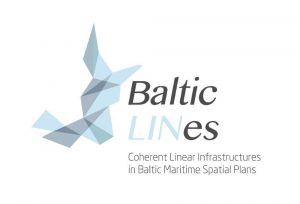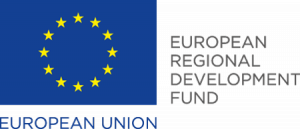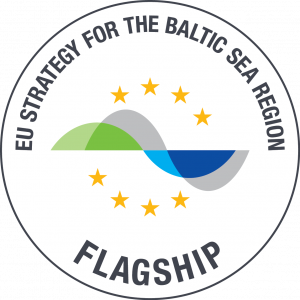Transnationally coherent planning solutions
Transnationally coherent planning solutions for linear infrastructures
Baltic LINes project aims to develop and propose transnationally coherent planning solutions for linear energy infrastructures and shipping lanes, which are in line with the ecosystem based approach and which in turn shall form the backbone for decisions and solutions to be integrated into the national cross-sectoral Maritime Spatial Plans to be created/revised by Baltic Sea Region countries by 2021. Baltic LINes places initial focus on finding planning solutions for sustainable transnational shipping lanes and energy corridors which facilitate sustainable Blue growth for the given sectors while giving due regard to current and future environmental and socio-economic conditions and constraints.
Aim of the project activity
Shipping is the most traditional and transnational user of marine space. The Baltic area consists of highly and increasingly frequented waterways used by very different kinds of vessels. Size, quantity and draught of ships is expected to increase in the coming years with consequences for the environment as well as navigation safety. Despite being entitled to free navigation, shipping in the Baltic Sea is coming increasingly under pressure from other activities. In particular it is effected by the increasing number and size of areas with fixed installations at sea due to offshore wind energy production and transmission (cables, grids, pipelines). Already now, available space is scarce and infrastructure needs to be designated very carefully taking a pan-Baltic as well as cross-sectoral perspective as they effect each other.
What is more: given the long lasting nature of energy and port infrastructures and their related planning cycles; the MSPs to be developed by 2021 do not only have to regulate among current uses, but have to take a longterm perspective in order to ensure that suitable space is available for future developments such as a transnational/pan-Baltic offshore grid.
The main responsible project partner for developing suggestions for transnationally coherent planning solutions is Federal Maritime and Hydrographic Agency.




